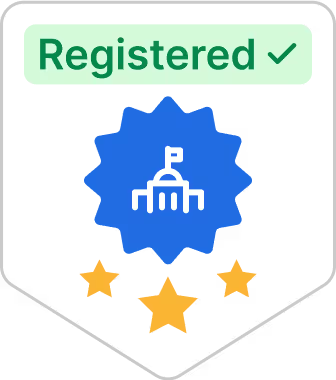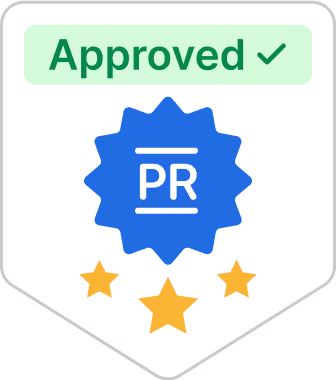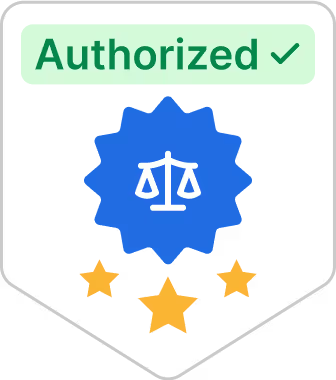How to check for identity theft

Identity theft is a problem that can happen to anyone. Even people who are careful about their personal security and take precautions to secure their data can fall victim to fraudulent charges made by a determined identity thief. That’s why it’s important to regularly check for identity theft so you can find a case of fraud as soon as possible, which can help to minimize the damage.
To that end, let’s cover how to check if your identity has been stolen by isolating the red flags to be aware of. From there, let’s also discuss what steps you should take to remedy the situation.
Identity protection basics: How to know if your identity was stolen
Identity comes in many different forms, so to keep yourself protected against all forms of identity theft, it’s important to be vigilant and ready to act on any potential signs of fraud.
#1 Know the warning signs
Before learning key indicators of identity theft, it is important to know what exactly it is first. What is identity theft? It is a crime that occurs when an identity thief gets access to your sensitive and personal information.
A great way to prevent yourself from becoming an identity theft victim is to know the warning signs of fraud. While these warning signs are not always because of identity theft, they can help give you an idea of when something suspicious is going on with your accounts so you know to be on guard.
Here are some things to look for:
- Unexplained withdrawals
- Bounced checks
- No longer receiving bills in the mail
- Debt collectors call about debts that aren’t yours
- Unauthorized charges on your credit report
- Medical bills for services you didn’t get
- Having medical claims rejected because you’ve reached your benefit limit
- Getting IRS notifications about multiple tax returns filed under your name
- Tax returns for companies you don’t work for or years you didn’t work
- Data breach at a company where you work or have an account
If you notice any of these warning signs, it’s a good idea to check your credit report or bank account information. One of these signs on their own might not mean you’re experiencing fraud, but if you’re experiencing several of them, there may be reason for concern.
#2 Invest in identity theft protection software
If you don’t have the time for constant credit monitoring, or you know you’re someone who forgets things easily, then investing in identity theft software might be a good choice.
ID theft software goes through different websites like credit reports and loan applications and automatically scans for any mentions of your personal information to let you know about any suspicious activity.
There are also several great free resources that will help you scan the internet for fraud, like the website Have I Been Pwned, which allows you to check if your email or phone number has been involved in a data breach.
#3 Run a credit report
If you’re questioning how to find out if your identity has been stolen, then running a credit report is the way to go.
Credit score reports are documents showing your debt, history of payments, and other financial information. It’s typically used by companies to gauge your credit score, but it can also be incredibly helpful when looking for fraud.
You can get a free credit report once a year from a major credit bureau. The three most prominent bureaus include Equifax, Experian, and TransUnion. If errors are noticed in this report, you can write to the credit reporting agency and any other involved providers, letting them know about the fraud and to open up an investigation into the incident.
What to do if your identity has been compromised
If while you’re checking your accounts you find fraudulent charges that lead you to believe your sensitive information has been compromised, then it’s time to create a recovery plan.
Your recovery plan is going to differ based on what type of identity theft you are experiencing and how extensive the damage is, but here are some potential steps you might need to take to recover:
- Call companies where identity fraud has occurred – When you call companies where fraud is being committed under your name, you can close or freeze the bank account you need to stop the flow of money immediately.
- Place a fraud alert – You can place a free identity fraud alert that will make it more challenging for someone else to open a fraudulent account with your information at a major credit bureau.
- Report Incident to FTC – The FTC specializes in helping people recover from identity theft. After you fill out your report, either online or by calling their number, they can help supply you with a personalized plan for recovery.
By taking action as soon as possible, you can help minimize the fallout you experience due to identity theft.
Apply online
After experiencing ID theft, you may need a social security card replacement. To avoid the hustle and bustle of visiting a government office, simply fill out this form to apply for a social security card online.
We also provide supplemental information on how to prevent identity theft in addition to an in-depth discussion and answer to the common question, “Is identity theft protection worth it?” so that you have all the answers you need.
Sources:
- Warning Signs of Identity Theft. Identity Theft. https://www.identitytheft.gov/#/Warning-Signs-of-Identity-Theft
- Most People Shouldn’t Pay for Identity Theft Protection. NYT. https://www.nytimes.com/wirecutter/guides/identity-theft-protection/
- Credit Reports. USA. https://www.usa.gov/credit-reports
- Steps. Identity Theft. https://www.identitytheft.gov/#/Steps























